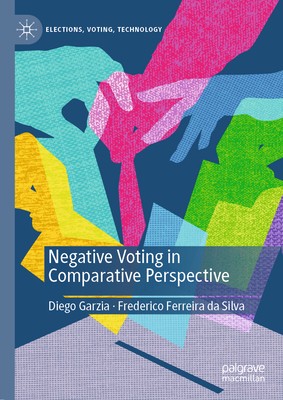
- We will send in 10–14 business days.
- Author: Diego Garzia
- Publisher: Palgrave Macmillan
- ISBN-10: 3031512073
- ISBN-13: 9783031512070
- Format: 15.7 x 21.2 x 1.2 cm, hardcover
- Language: English
- SAVE -10% with code: EXTRA
Reviews
Description
Why do some people conceive their vote choices as mostly against, rather than for a given party/candidate? Who are these negative voters? What macro-level conditions favor the development of negative voting? This volume provides answers to these questions through the first comparative assessment of negative voting in contemporary democracies. It presents a composite theoretical framework for the analysis of negative voting and tests it extensively on originally collected survey data from Canada, France, Germany, the Netherlands, and the United States. Examining negative voting as a possible behavioral consequence of affective polarization and negative partisanship, this study sheds light on the electoral implications of increasingly antagonistic attitudes among the electorate.
EXTRA 10 % discount with code: EXTRA
The promotion ends in 20d.02:01:57
The discount code is valid when purchasing from 10 €. Discounts do not stack.
- Author: Diego Garzia
- Publisher: Palgrave Macmillan
- ISBN-10: 3031512073
- ISBN-13: 9783031512070
- Format: 15.7 x 21.2 x 1.2 cm, hardcover
- Language: English English
Why do some people conceive their vote choices as mostly against, rather than for a given party/candidate? Who are these negative voters? What macro-level conditions favor the development of negative voting? This volume provides answers to these questions through the first comparative assessment of negative voting in contemporary democracies. It presents a composite theoretical framework for the analysis of negative voting and tests it extensively on originally collected survey data from Canada, France, Germany, the Netherlands, and the United States. Examining negative voting as a possible behavioral consequence of affective polarization and negative partisanship, this study sheds light on the electoral implications of increasingly antagonistic attitudes among the electorate.


Reviews